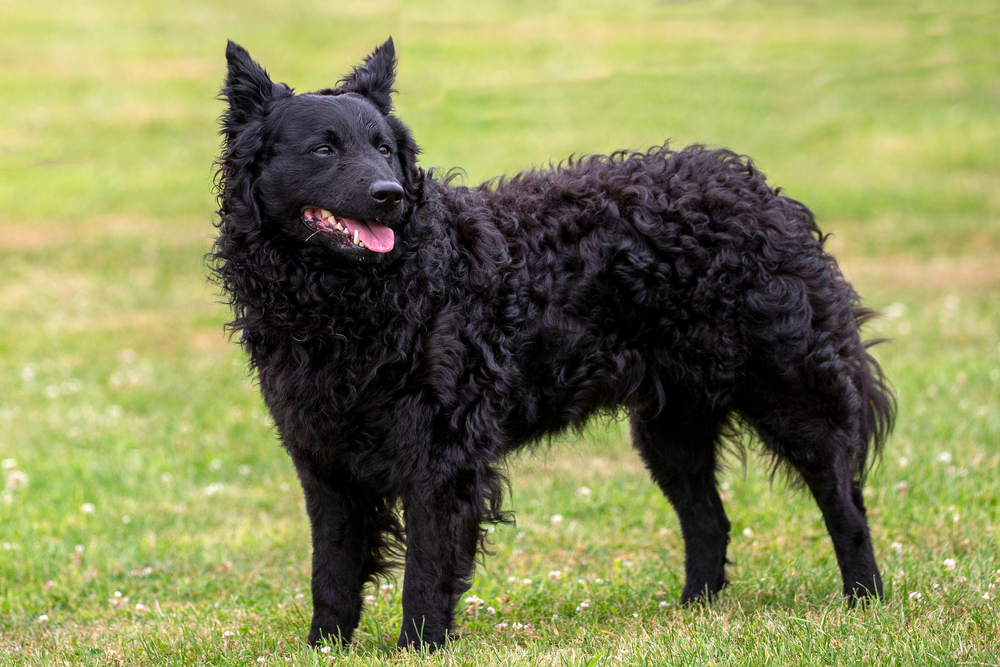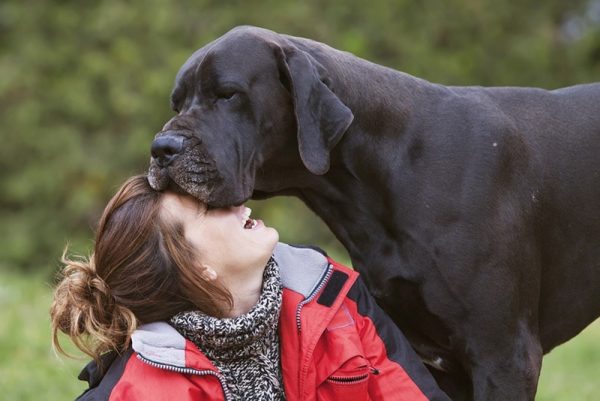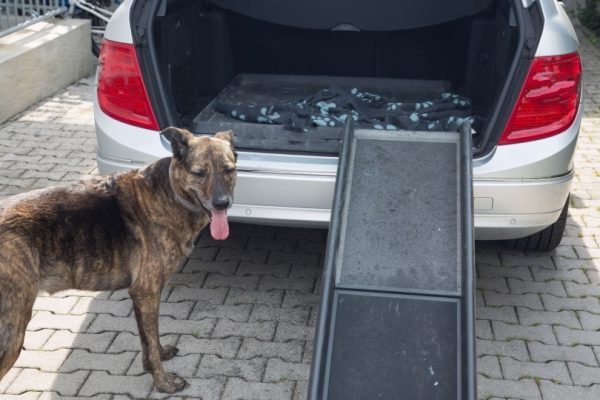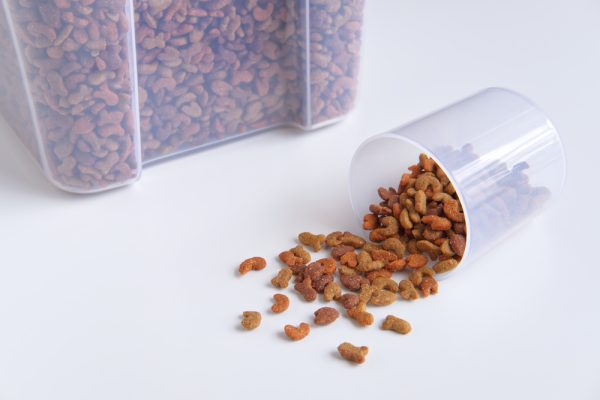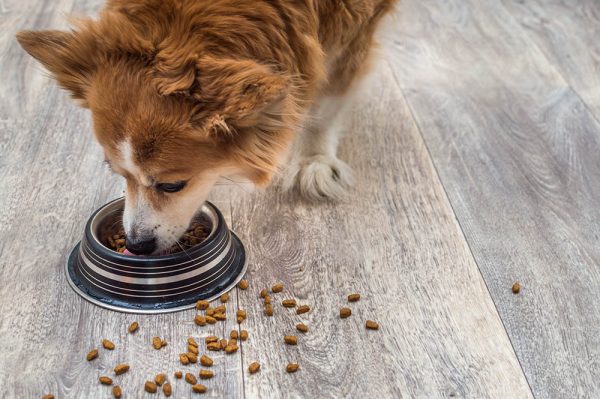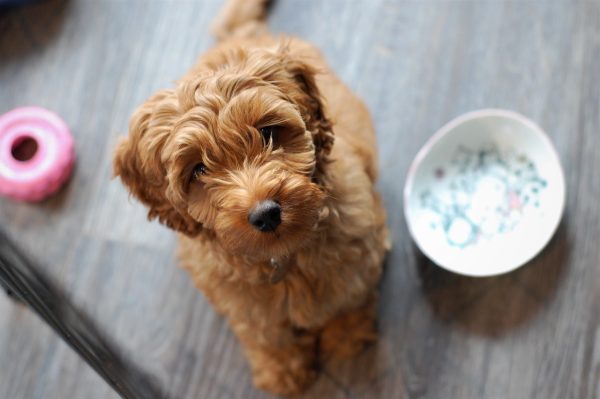In this article
View 8 More +The Mudi is a purebred herding dog from Hungary. They are a highly trainable breed known for their alertness, intelligence, and athleticism. While the Mudi have been around for hundreds of years, they can be extremely difficult to find outside their homeland in Hungary. They are a highly sought-after breed for their lovable, loyal, and affectionate personalities and seemingly boundless energy.
Breed Overview
Height:
15–18 inches
Weight:
18–29 pounds
Lifespan:
12–14 years
Colors:
Black, white, yellow, gray, gray-brown, brown
Suitable for:
Active families, experienced dog owners, large properties, herding work
Temperament:
Loyal, energetic, intelligent, alert, hardworking
The breed’s name is pronounced “moody,” but they are anything but temperamental. Mudis are lively and busy pups who are equally happy being provided with a job as they are lounging out next to their owners on the sofa. These big softies are eager to please their owners and will be yours for life when you reward and praise them for a job well done.
Mudi Characteristics

Mudi Puppies
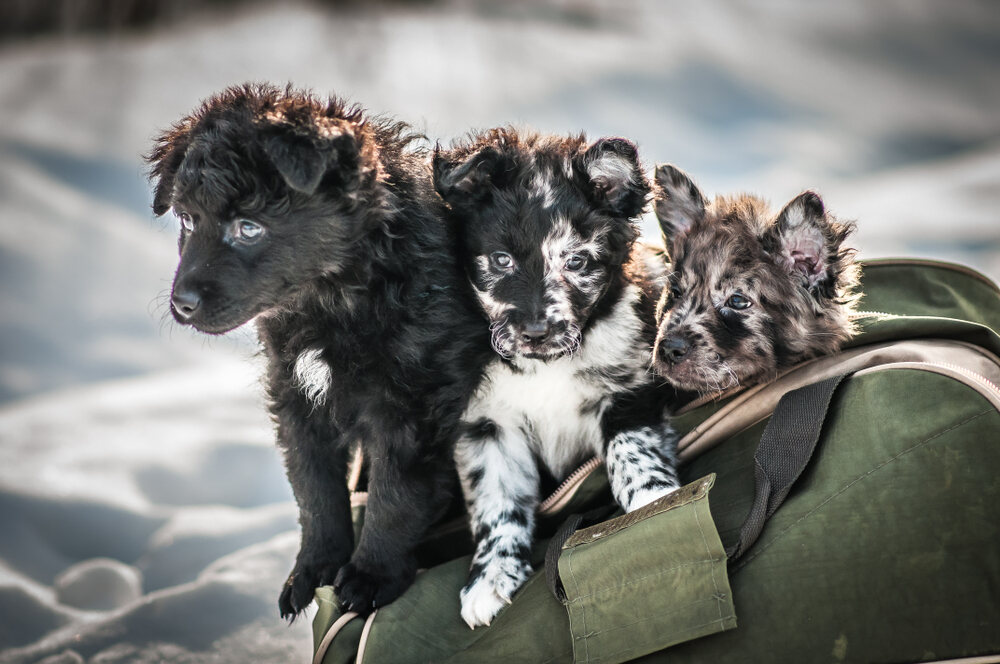
The Mudi is an extremely rare breed outside of its homeland of Europe. However, there are several United States-based breeders listed on the American Kennel Club’s Marketplace.
Many of the puppies in these litters come from champion bloodlines, which makes them highly sought after and very expensive. This may be a financial barrier for some Mudi fanciers, but the high price reflects the breeder’s commitment to producing healthy puppies. Since Mudis are so rare, it can take a very long time for breeders to find suitable parents to breed. They need to run several genetic tests to ensure the parents have no diseases they can transmit to their puppies, which is no cheap undertaking. All reputable breeders will have health tests performed on the breeding pair and will have no problems making the results of these tests available to potential adopters.
If you have your heart set on adopting a Mudi, don’t be surprised if you need to wait some time on a waiting list before one becomes available.
Mudi Breed Origin & History
The Mudi is a herding dog that originated from Hungary. The breed is closely related to other Hungarian herding breeds like the Pumi and Puli. The breed was first discovered in the 1930s, but it almost became extinct after World War II. Thankfully, a few survivors remained after the war, and the breed was rebuilt in the 1960s. However, it remains a rare breed today, especially outside of Europe. Mudis are still favored by shepherds to cattle herds and work sheep in their home country of Hungary, but there are just a small number of fanciers in North America.

Temperament & Intelligence of the Mudi 🧠
The Mudi is an eager-to-please and enthusiastic dog breed. They are highly intelligent, alert, and easily trainable, making them fantastic companions and working dogs. They thrive in homes with active families or those that can provide them with a job to do. The Mudi are easygoing and always up to try new activities, though they do have an “off switch” that makes them perfectly content spending a day on the couch watching Netflix with you.
Mudis are highly people-oriented and want to be with their humans as much as possible. They will follow their people around wherever they go, thriving in an environment where they’re treated as the family members they are and not expected to be kept in the backyard without any social time with their humans.
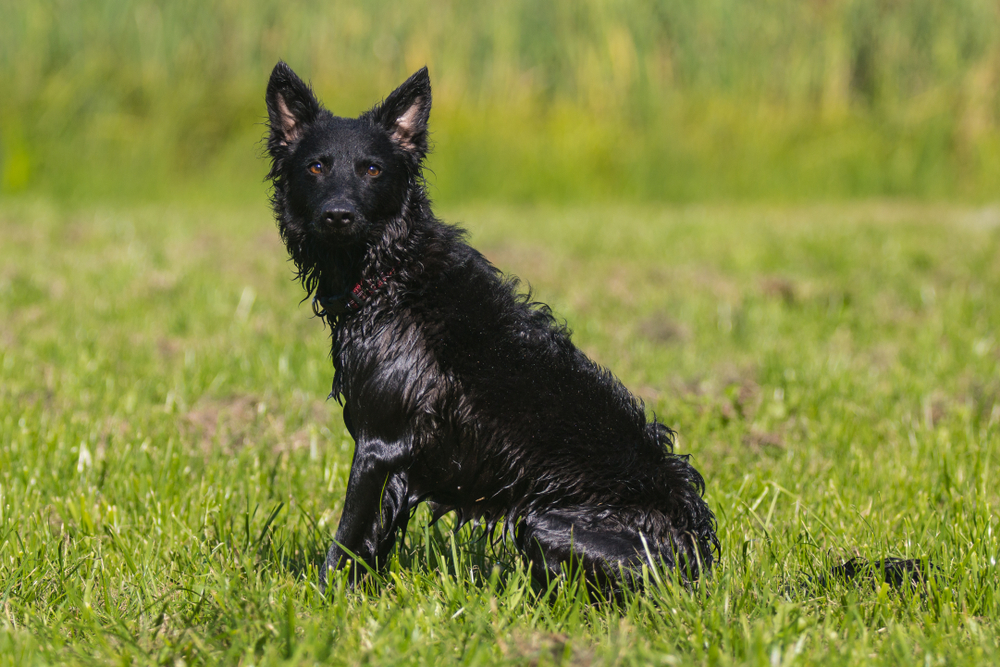
Are These Dogs Good for Families? 🏡
The Mudi can be a great family dog, given their high energy level and willingness to play. They can play rough as puppies, which is something potential owners should keep in mind, especially if there are young children in the family.
Mudis enjoy being part of a large and active family. However, they need to be socialized properly when they’re young to ensure they know the etiquette required of them around children. Kids can be erratic and unpredictable, which can ignite the Mudi’s herding instincts.
This breed is a loyal protector of property and family, but they aren’t overly aggressive. They are sensibly suspicious and weary of strangers, which can make them excellent watchdogs. Because of their herding background, Mudis use their barks as an alarm when they take note of anything unusual in their territory.
Does This Breed Get Along With Other Pets? 🐶 😽
The Mudi can get along with other household pets if they’re raised with them. They are generally friendly toward other dogs and can live harmoniously alongside other non-canine pets if they’re brought up together from puppyhood or given a proper introductory period after the Mudi has been trained and socialized.

Things to Know When Owning a Mudi:
Food & Diet Requirements 🦴
Mudis need a diet formulated for high-energy and working dog breeds. Their dietary requirements will change as they age from puppies to adults and then to seniors, so owners must take note of their dog’s life stage to ensure they’re meeting their pup’s requirements.
Mudis will ideally burn a lot of energy throughout their day (see Exercise below) and will require high-quality energy sources. High-protein and quality sources of fat will help support these pups and ensure their nutritional needs are met.
We recommend owners consult their veterinarian for diet recommendations, including the best foods and quantity to offer. Overfeeding is still a very real possibility in high-energy breeds, and becoming overweight is not difficult if the dog is being fed too much and exercising too little.
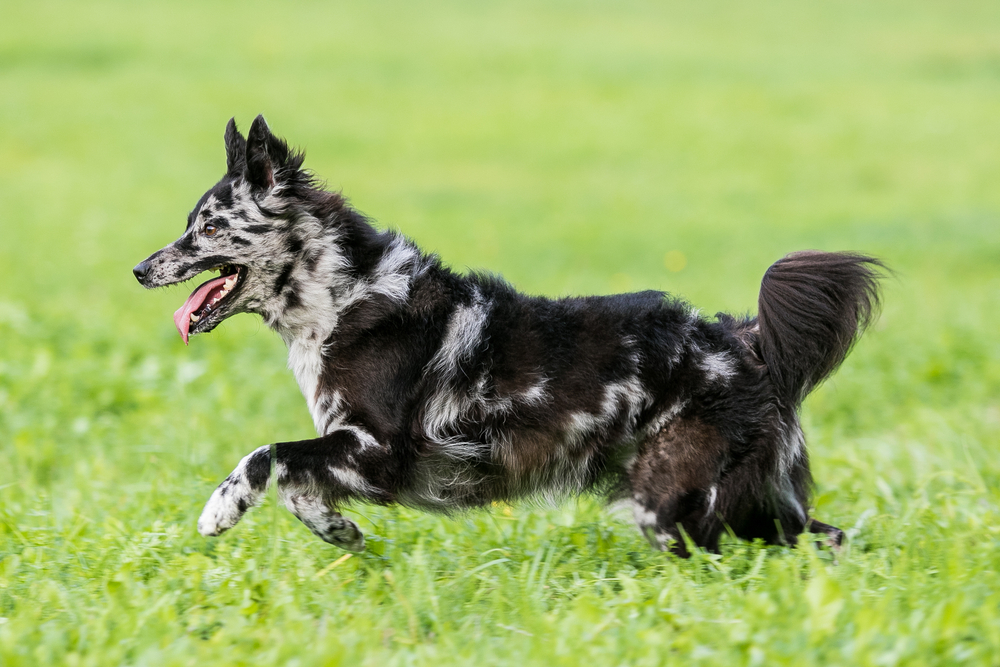
Exercise 🐕
The Mudi is a highly energetic and playful dog with relatively high exercise requirements. They need at least an hour of energy-burning activity daily, and for some dogs, a simple walk will not cut it. This is a fantastic breed for active families that spend much time running, hiking, and swimming and will not shy away from allowing their dog to join in on the fun. The Mudi can excel at dog sports like flyball, frisbee, and obedience and are known for their extraordinary jumping skills.
A well-exercised Mudi will not get into (much) trouble elsewhere, so owners need to ensure they’re giving their pups plenty of opportunities for physical activity and energy burning to keep bad behaviors at bay.
Training 🦮
If the Mudi isn’t provided with the right amount of physical and mental stimulation, they can become extremely barky and demanding. They are highly intelligent thinkers who love to learn, so owners must put in the effort to train their dogs and provide the required stimulation.
This breed is almost always enthusiastic about doing a job, a trait that makes them extremely eager to please their humans and very trainable. Because they’re herding dogs, they can be “on the job” 24/7, which may mean they try herding your children or other household pets. This behavior can be corrected, or at least addressed, with training, but it is something to take note of.
Grooming ✂️
The Mudi has one of the easiest and low maintenance coats. They only need to be brushed once or twice weekly to keep them looking their best and their coats tangle-free. They don’t shed as much as other breeds, so baths are only necessary occasionally to remove dead hair or clean up a particularly muddy pup. As with all dogs, the Mudi will need their teeth brushed and nails trimmed. Owners should get into the habit of checking their ears for dirt and debris, too.
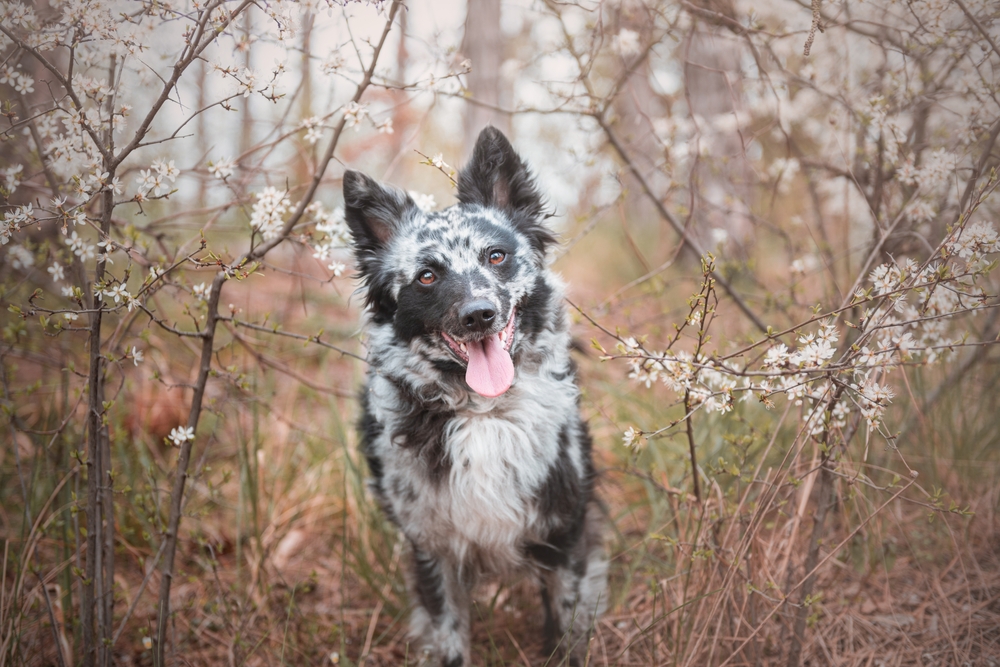
Health and Conditions ❤️
The Mudi is a healthy breed, though it is recommended that responsible breeders perform various genetic health screenings to ensure the health of the puppies they create. This includes screening for hip and elbow dysplasia and patellar luxation. These dogs, as with any other breed, may also be at risk of eye conditions.
- Eye conditions
- Hip dysplasia
- Elbow dysplasia
- Patellar luxation
Male vs Female
The only difference between male and female Mudis is their size. Males are noticeably larger in both height and weight than females. Males are typically between 16 and 18.5 inches tall and 24 and 29 pounds, while their female counterparts are shorter, between 15 and 17.5 inches tall and 18 to 24 pounds.
There are no noted differences between the personality of a male and female Mudi. The breed’s even, predictable temperament means that any hormonal differences between genders will do little to change who they are at their core.

3 Little-Known Facts About the Mudi
1. The Mudi has been in existence since the 19th century.
The Mudi originally hails from Hungary, where it is believed to have evolved from crosses of Pulis, Pumis, and German Spitz breeds in the 19th century. Though the breed has been around for hundreds of years, it wasn’t acknowledged by the American Kennel Club as a purebred breed until 2022, making it one of the most newly-recognized dog breeds.
2. The Mudi still works as a herding dog in Hungary.
Mudis are relatively difficult to find in North America, but shepherds in the dog’s homeland of Hungary still actively use this breed to herd flocks containing up to 500 sheep!
3. The Mudi can have a variety of coat colors and textures.
Mudis come in a wide range of coat colors in both solid or merle patterns. Their coat texture can range from fine to rough and is generally short and straight by the face and fronts of the legs and wavy or curly throughout the rest of the body.

Final Thoughts
The Mudi is a rare breed outside of its homeland of Hungary, but it has many appealing physical characteristics and personality traits that make it a highly sought-after breed throughout the rest of the world. These dogs make fantastic family pets, but they need an owner who’s willing to provide them with the exercise they need to stay happy and healthy. These high-energy pups thrive in homes with people who prioritize physical activity and allow their dogs to partake in all the adventures. This probably isn’t the right breed for first-time dog owners, nor are they well-suited to apartment life. The Mudi needs a lot of space to burn off energy and requires an owner who can act as pack leader and take charge when it comes to training and socialization.
Featured Image Credit: Sue Thatcher, Shutterstock
